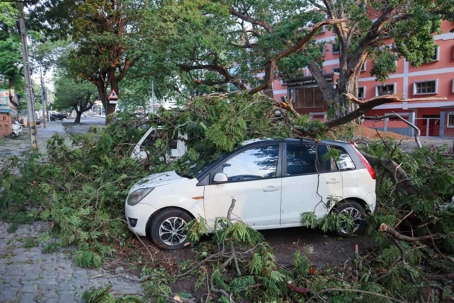When a hurricane rolls through, it’s not just your home that’s at risk—your car can take a serious hit too. For many people in Tampa, Florida, dealing with the aftermath can be confusing, especially when it comes to insurance. You might think your policy covers everything, but that’s not always the case. Some damage slips through the cracks, leaving you with bills you weren’t expecting.
Let’s break down what your insurance might actually cover—and where it might fall short—so you’re better prepared when the next storm hits.
Understanding Different Types of Vehicle Insurance
Comprehensive Coverage versus Liability Coverage
There’s a big difference between comprehensive and liability insurance. Comprehensive coverage protects your vehicle from things like wind damage, flooding, or falling debris during a hurricane. Liability coverage, on the other hand, only kicks in if you cause damage or injury to someone else. So, if you don’t have comprehensive coverage, hurricane damage won’t be covered, and that can leave you footing a big repair bill.
Lesser-Known Insurance Types
There are a few other options worth knowing about. Gap insurance, for example, helps if you’re still paying off a loan or lease on your car and it gets totaled in a hurricane. It covers the difference between what you owe and what your insurance pays out. Personal Effects Coverage is another one—it helps replace your stuff inside the car if it gets damaged during a storm. These add-ons can make a big difference when the unexpected happens.
Common Vehicle Damages Caused by Hurricanes
Wind-Related Damage
Hurricane winds can smash windows, dent your car’s body, or even rip off parts. Most comprehensive policies cover wind damage, but some have limits on how much they’ll pay out. It’s smart to check your policy closely so you’re not surprised by out-of-pocket costs later.
Water and Flood Damage
Flooding is often the worst damage from a hurricane. Water can ruin your engine, wreck electronics, and destroy your car’s interior. Flood damage usually falls under comprehensive coverage, but some policies require extra endorsements to cover it. This can vary a lot, so it’s important to double-check your insurance before hurricane season arrives.
Insurance Coverage Limitations for Hurricane Damage
Policy Exclusions and Deductibles
Insurance policies come with fine print. Some may exclude certain types of water damage or have high deductibles that leave you paying a lot upfront. Higher deductibles usually mean lower monthly premiums but more money out of your pocket if you file a claim. Knowing what your policy excludes—and how much your deductible is—can help you avoid nasty surprises.
Depreciation and Payout Limits
When your insurance company calculates your payout, they consider how much your car’s value has dropped over time. This means older cars often get less money after damage. Plus, some policies have a cap on how much they’ll pay, regardless of repair costs. Getting familiar with these details can help you plan better in case your car takes a hit.
Steps to Ensure Adequate Coverage
Reviewing and Updating Your Policy
Before hurricane season, take some time to review your insurance policy. Look for gaps like missing flood coverage or outdated limits. Talk to your insurance provider about options to beef up your protection so it fits the risks where you live.
Regular Vehicle Appraisal and Documentation
Keeping records of your car’s condition before any damage happens can make a big difference when filing a claim. Photos, appraisals, and maintenance records help prove your vehicle’s value and condition. This kind of documentation can protect you from lowball offers based on depreciation.
Navigating Claims and the Insurance Process
Filing a Claim Post-Hurricane
Right after a storm, document all damage carefully with photos and notes. Then, report your claim quickly—many insurers have deadlines for filing. The more detailed your claim, the smoother and faster the process will be.
Working with Assessors and Adjusters
When the insurance adjuster comes around, be clear and thorough about what’s wrong. Provide all your documentation and don’t hesitate to ask questions. Being proactive and organized can help you get a fair settlement, so you’re not stuck paying for damage yourself.
Protect Your Vehicle Before the Next Storm
Hurricanes are unpredictable, but your insurance coverage doesn’t have to be. If you’re unsure whether your policy will cover hurricane damage—or if you need help with a recent claim—don’t wait to get help.
At The Florida Law Group, we’re here to guide you through the insurance maze and protect your rights. Call us at (833) 899-0310 for a consultation tailored to your situation. Let’s make sure you’re ready before the next storm hits.

